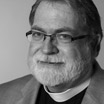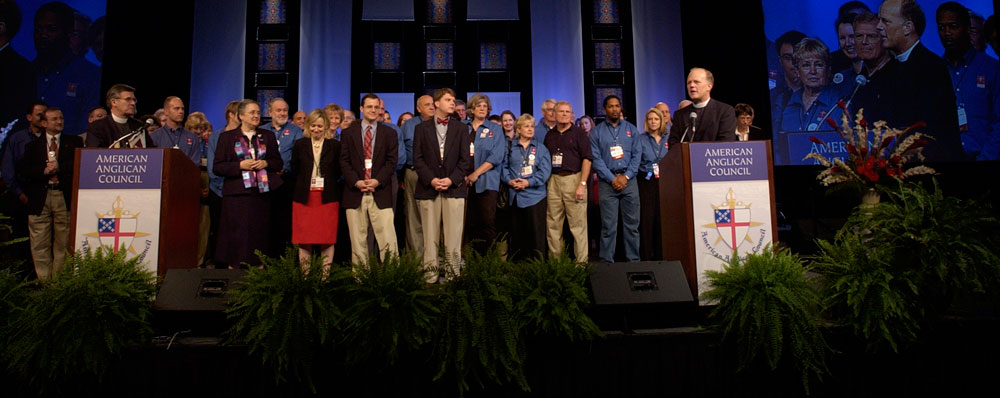20 years ago this week the American Anglican Council began! It was August, 1996 when Biblically faithful Episcopalians incorporated this non-profit to give them a place to stand in a Church that was no longer standing on the clarity and authority of God’s word. “A Place to Stand” was the statement of common faith organizational meetings adopted. This confession, if you will, was in the tradition of the great Anglican Reformers and the 39 Articles of Religion. Hundreds of years ago, as now, followers of Jesus Christ in the Anglican Way saw what was at stake—the Church was losing its Scriptural moorings and its Gospel voice.
Perspective on the AAC’s Beginnings: August 1996 was before the Lambeth 1998 Conference of Anglican Bishops and their resolve to uphold Biblical teaching on human sexuality, marriage and Holy Orders. August 1996 was seven years before the consecration of Gene Robinson, a non-celibate homosexual bishop in the Diocese of New Hampshire. August 1996 came over a decade before the Global Anglican Future Conference (GAFCON) in 2008 and the Anglican Church in North America (ACNA) in 2009. It was before lawsuits and loss of church properties. In 1996 the current Archbishop of Canterbury, Justin Welby, was a 40 year old Vicar in the Church of England.
Years before these milestones and turning points occurred, Biblically faithful Episcopalians founded the American Anglican Council and its “A Place to Stand” confession of faith. The new organization sought to return The Episcopal Church USA (TEC) to its apostolic, Biblical and Reformational Anglican roots.
I first encountered the AAC, or what would become the AAC, at an organizational meeting in June, 1996 called the Briarwood consultation. What stirred my heart was the group’s commitment “to Build a Society of Great Commission Churches.” After incorporating, the AAC held its first national conference—“Becoming a Society of Great Commission Churches: Evangelical, Catholic and Charismatic.” That commitment resonated through its witness at TEC General Conventions from 1996 to 2009. It resonated through the great gathering of Biblically faithful Episcopalians in 2003 in Plano, TX. It was the reason we went to Jerusalem and served GAFCON, helped congregations and Dioceses leave The Episcopal Church and assisted in forming the Anglican Church in North America.
That commitment continues to shape the vision and mission of the American Anglican Council. Here at the AAC, we’ve gone through a time of re-formation as well. We have adapted to the needs of Anglicans today in North America—and beyond—as I shared in a recent interview with Anglican TV. We must never forget the lessons we learned over the last 20 years in Anglicanism. But as we look ahead, we see a culture in North America whose people are desperately in need of Jesus and his transforming love. We are “longing for a better country” (Desiring a better country Hebrews 11 16) and need to ask ourselves, as the Church, how WE can open doors for “the City of God” to invade our secular cities and communities. We need a revival in North America—and it will depend on us, the Church, to prayerfully and sacrificially open doors for God’s kingdom to invade our communities so that what God wants done is done.
Focusing on Anglicanism in North America: The American Anglican Council’s number one priority is to build a society of Great Commission Churches in North America. We do this helping developing faithful leaders at every level of the ACNA—in our Bishop’s Training, our Clergy Leadership Institutes, our upcoming Summit for Rectors leading multi-staff congregations, lay leadership training and more. Through our Diocesan, regional and local Church revitalization workshops, and with follow-up coaching we help Anglican congregations across North America to renew their unique, God given vision to help people find and follow Jesus in their communities. Through our teaching resources such as Anglican Perspective videos on the 39 Articles, we provide congregations with resources to help grow followers of Jesus Christ in the Anglican Way. We continue to move beyond the Anglican world to partner with other Christian denominations in the Common Ground Christian Network – a coalition we helped launch in 2012 who share our commitment to build a society of Great Commission Churches. We will continue to help educate, prepare, and coordinate Anglicans and others to defend our religious liberties.
We continue our commitment to renew Reformational Anglicanism within the Anglican Communion. The AAC continues to fearlessly expose erroneous teaching and false Gospels that threaten to overwhelm the Anglican Communion. We work for a renewed Anglican Communion that upholds the clarity and authority of the Holy Scriptures as the ultimate standard for our faith and practice. We advocate for a replacement of the governing structures that have failed Anglicanism at the global level by empowering false teaching and false gospels. In place of those structures, we believe Provinces in the Anglican Communion could work together in a conciliar way which would uphold the clarity and authority of the Bible.
Our work must focus on where we started, North America. You will hear us in the days and months ahead focusing more on developing Biblically faithful leaders, equipping local churches to fulfill Christ’s Great Commission, and renewing what it means to follow Jesus Christ in the Anglican way here in North America. I’m convinced that the best way to strengthen Biblically faithful Anglicanism worldwide is to begin by strengthening it here in North America. Please join us and support us in our work, the great adventure of building a society of Great Commission churches in the Anglican Church in North America—and beyond!
The Rev
Desiring a better country—a message from Hebrews 11:13-16
In this message from Sunday August 7, 2016, Canon Ashey outlines three reasons why the Church must not withdraw from a North American culture that has embraced extreme moral relativism, terminal narcissism and political chaos. Drawing from the “heroes of the faith” in Hebrews 11 who have gone before us, he concludes:
“We have confidence because God will allow his heavenly city to touch our earthly cities from time to time to give people a taste of heaven itself. We can call people in our secular cities to lift the horizon of their hopes and build better secular cities that are based on the values and foundations that God himself has laid in his promises. We have a Biblical vision that calls us to a common good that will deliver us from death by terminal narcissism.”
“You know, whoever wins this presidential election has a terrible mess to clean up. So the real question is not ‘what will they do?’ Rather, we must ask ourselves “Church, what will WE do to bring the vision, the promises and the resources of our heavenly home to bear on the world around us? How will WE open doors for God’s Kingdom, God’s city, to invade our cities—so that what God wants done IS done?”
Audio: Listen to the whole message


